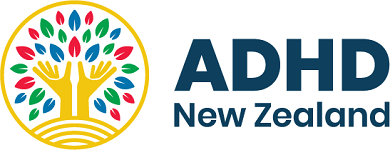There are many different types of professional doctors who can play important and on-going roles in the care of your child and / or family if they've diagnosed with ADHD.
You may have wondered what the differences were and which ones might be suited to help you and your family.
To help you get your head around these terms and titles, we've outlined some of the differences below.
You may have wondered what the differences were and which ones might be suited to help you and your family.
To help you get your head around these terms and titles, we've outlined some of the differences below.
What are primary care physicians and family physicians?
For these healthcare professionals routine childhood preventive care, including annual physical evaluations, routine inoculations and other first line health concerns, are a priority.
These doctors care for any illness, including cold, ear infection, and injury.
These doctors care for any illness, including cold, ear infection, and injury.
What's a paediatrician?
Paediatricians are specialists in the assessment, diagnosis and management of infants, children and young people with disturbances of health, growth, behaviour and / or development.
Paediatricians are either a “General Paediatrician” or a “Developmental Paediatrician” (although some can be both).
A General Paediatrician can assess your child for ADHD but may not assess for other co-mobidities such as Autism Spectrum Disorder (ASD).
General paediatricians will also help you and your family interpret the results of a specialist’s evaluation.
As well as the above-mentioned routine childhood preventative care, general paediatricians also play an important role in monitoring side effects of medications your child may be taking and will note if there are other concerns.
They will also help you and your family locate specialists for any additional care that might be required.
Paediatricians are either a “General Paediatrician” or a “Developmental Paediatrician” (although some can be both).
A General Paediatrician can assess your child for ADHD but may not assess for other co-mobidities such as Autism Spectrum Disorder (ASD).
General paediatricians will also help you and your family interpret the results of a specialist’s evaluation.
As well as the above-mentioned routine childhood preventative care, general paediatricians also play an important role in monitoring side effects of medications your child may be taking and will note if there are other concerns.
They will also help you and your family locate specialists for any additional care that might be required.
What's the difference between a general pediatrician and a developmental pediatrician?
If your child has developmental concerns or delays, they can benefit from seeing a developmental pediatrician. Developmental assessments help you and your family know what to expect over time and how to redirect intervention and support as required.
Developmental pediatricians (also called developmental and behavioral pediatricians) are specialists at understanding the developmental concerns of childhood. A Developmental Paediatrician assesses ADHD and Autism Spectrum Disorder (ASD) more expertly as they are neuro-developmental conditions.
As your child grows up, it's important that a developmental pediatrician follow their physical growth and emotional development and see how they progress and change over time. For example, if your child has ADHD and a co-mobidity such as Autism Spectrum Disorder (ASD) over time they will have differing expressions and manifestations, so it's important that you have regularly scheduled evaluations with a developmental pediatrician.
Developmental pediatricians (also called developmental and behavioral pediatricians) are specialists at understanding the developmental concerns of childhood. A Developmental Paediatrician assesses ADHD and Autism Spectrum Disorder (ASD) more expertly as they are neuro-developmental conditions.
As your child grows up, it's important that a developmental pediatrician follow their physical growth and emotional development and see how they progress and change over time. For example, if your child has ADHD and a co-mobidity such as Autism Spectrum Disorder (ASD) over time they will have differing expressions and manifestations, so it's important that you have regularly scheduled evaluations with a developmental pediatrician.
What's the difference between a psychiatrist and a psychologist?
You may be referred to a psychiatrist if your doctor feels you need specialist assessment, diagnosis and potentially to also discuss the role medication might play in your child or adolescent’s recovery.
Check your psychiatrist's title as it reflects their training and competencies. For example, a “Psychiatrist” consults to adults (18 years and older) only, unless they're trained overseas, where some training can be across the age span. A “Child and Adolescent Psychiatrist” consults to children and adolescents and is a specialist in the development of this age group.
A child and adolescent psychiatrist is a medical doctor who, after basic medical qualifications, receives further training in child and adolescent psychiatry and develops the expertise to become a ‘specialist’ in identifying symptoms of, diagnosing and treating conditions that are categorised as ‘mental illnesses’. This includes neuro-developmental conditions such as ADHD and ASD.
A psychologist, with a particular focus on understanding your child or adolescent and their environment, can help diagnose and prescribe the therapeutic treatment of mental illness, abnormal behaviour and psychiatric problems.
All psychologists in New Zealand are required to undertake undergraduate and postgraduate university degrees, with some to the doctoral level (as indicated by their ‘Dr’ professional title). Psychologists have generally undergone extensive training in understanding all aspects of psychological functioning. Psychologists can also provide neuro-psychological assessments of brain function including intelligence and attention.
In addition, a psychologist can be trained in various sub-speciality areas. An example of a specialist level (with a Paediatric Neuro-psychologist) can look at more complex neuro-psychological systems and their relationship to functioning and can recommend appropriate support for your child at school and at home.
Check your psychiatrist's title as it reflects their training and competencies. For example, a “Psychiatrist” consults to adults (18 years and older) only, unless they're trained overseas, where some training can be across the age span. A “Child and Adolescent Psychiatrist” consults to children and adolescents and is a specialist in the development of this age group.
A child and adolescent psychiatrist is a medical doctor who, after basic medical qualifications, receives further training in child and adolescent psychiatry and develops the expertise to become a ‘specialist’ in identifying symptoms of, diagnosing and treating conditions that are categorised as ‘mental illnesses’. This includes neuro-developmental conditions such as ADHD and ASD.
A psychologist, with a particular focus on understanding your child or adolescent and their environment, can help diagnose and prescribe the therapeutic treatment of mental illness, abnormal behaviour and psychiatric problems.
All psychologists in New Zealand are required to undertake undergraduate and postgraduate university degrees, with some to the doctoral level (as indicated by their ‘Dr’ professional title). Psychologists have generally undergone extensive training in understanding all aspects of psychological functioning. Psychologists can also provide neuro-psychological assessments of brain function including intelligence and attention.
In addition, a psychologist can be trained in various sub-speciality areas. An example of a specialist level (with a Paediatric Neuro-psychologist) can look at more complex neuro-psychological systems and their relationship to functioning and can recommend appropriate support for your child at school and at home.
What are the different kinds of psychologists and what are the differences?
You've probably seen the term psychologist and may have an idea of what they do. But in relation to other titles such as a Clinical Psychologist, Counselling Psychologist, Educational Psychologist or Neuro-psychologist, you've no doubt wondered what the differences were.
The NZ Professional Psychologist Board have provided definitions of the different types of Psychologists and outlined the educational requirements for each, what they can advise on and the extent to which they can do this (called scopes of practice).
The NZ Professional Psychologist Board have provided definitions of the different types of Psychologists and outlined the educational requirements for each, what they can advise on and the extent to which they can do this (called scopes of practice).




